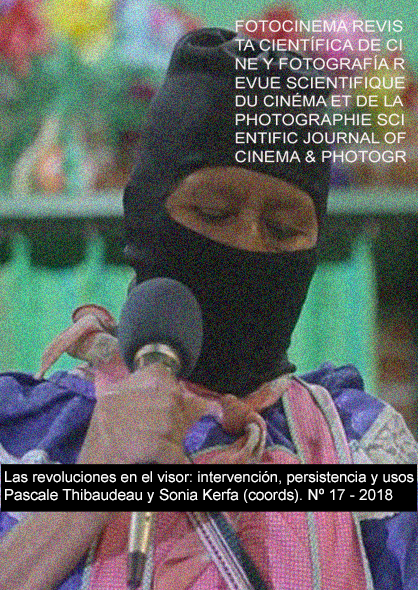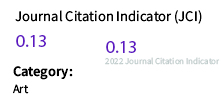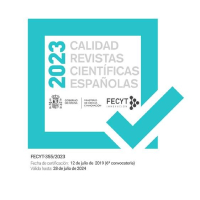For the argentine paths. A course through the political - militant cinema of Raymundo Gleyzer
DOI:
https://doi.org/10.24310/Fotocinema.2018.v0i17.5102Keywords:
Third Cinema, political-militant cinema, Raymundo Gleyzer, missing, Cine de la BaseAbstract
Raymundo Gleyzer, an Argentine filmmaker who disappeared in May 1976, left a vast production that combines documentary with fiction. Crossed by the precepts of Cinema Novo, he proclaimed that "to make movies, you only need a camera in hand and an idea in the head". As alma mater of the Cine de la Base, he shared with his colleagues at Cine Liberación the idea of the cinema as a tool for counter-information. More pragmatic than intellectual, he left few writings on his reflections on the third cinema or the construction of a new language. However, on the occasion of the presentation of his film Los Traidores, during the IX Pesaro International Film Festival of New Cinema in 1973, he sets out his position on the effectiveness of Latin American revolutionary cinema. Not only did he highlight some common features preached by the militant cinema, but he also emphasized the importance of videotape as a tool for the diffusion of films in the Latin American context. Also, in defending his decision to appeal to classical fiction to tell his story, he put in the eye of the storm the debate on the cinematographic language within European political cinema.
Downloads
Metrics
References
Carnovale, V. (2011). Los combatientes. Historia del PRT – ERP. Buenos Aires: Siglo XXI.
De la Puente, M. (2007). Estética y política en el cine militante argentino actual, (en línea) Disponible en: http://perio.unlp.edu.ar/ojs/index.php/question/article/view/358/290
Getino, O. (1998). Cine argentino. Entre lo posible y lo deseable. Buenos Aires: Ciccus.
Gleyzer, R. (1970). Presentación y autocrítica en forma de diálogo con Tomás Gutiérrez Alea. (en línea), Disponible en http://www.docacine.com.ar/articulos/gutierrez.htm
Gonzalez Janzen, I. (1986). La triple A. Buenos Aires: Contrapunto.
Gutman, D. (2003). Tacuara. Historia de la primera guerrilla urbana argentina. Buenos Aires: Vergara.
Longoni, A. (2006). El Fatrac: frente cultural del PRT-ERP. Lucha Armada en la Argentina. Buenos Aires, Año 2, Nº 4.
Martínez, T.E. (1973). La Pasión según Trelew. Buenos Aires: Planeta.
Metsman, M. (1993). Aproximaciones a una experiencia de cine militante (Argentina 1968-1973). (en línea) Disponible en: http://www.caia.org.ar/docs/21_Mestman.pdf
Metsman, M (2001a). Postales del cine militante argentino en el mundo, (en línea) Disponible en: https://issuu.com/rehime/docs/mestman__m.__2001__postales_del_cin
Metsman, M (2001b). La exhibición del cine militante. Teoría y práctica en el Grupo Cine Liberación, (en línea) Disponible en: http://www.panoramadelarte.com.ar/archivos/Tercer%20Cine.pdf
Metsman, M. (2016). Las rupturas del 68 en el cine de América Latina. Buenos Aires: Akal.
Monterde Lozaya, J.E (2016). Artes en Pantalla. El cine como dispositivo crítico. Barcelona: FUOC.
Nichols, B. (1997). La representación de la realidad. Cuestiones y conceptos sobre el documental. Barcelona: Paidós.
Ortega, M.L et al, (2008). Cine Directo. Reflexiones en torno a un concepto. Madrid: T&B.
Peña, F. y Vallina, C. (1998). El cine como arma. Raymundo Gleyzer y los comunicados del E.R.P. (1971-1972), Razón y Revolución Nº 4, (en línea), Disponible en: http://www.razonyrevolucion.org/textos/revryr/arteyliteratura/ryr4Pena.pdf
Peña, F. y Vallina, C. (2006). El cine quema. Raymundo Gleyzer. Buenos Aires: De la Flor.
Sapire, J. y Sabat, C. (2017). Compañero Raymundo. Buenos Aires: Sudestada.
Seoane, M. (1997). Todo o Nada. La historia secreta y la historia pública del jefe guerrillero Mario Roberto Santucho. Buenos Aires: Planeta.
Stam, R (2001). Teorías del cine. Una introducción. Barcelona: Paidós.
Downloads
Additional Files
Published
How to Cite
Issue
Section
License
All contents published in Fotocinema Revista científica de cine y fotografía are protected under the Creative Commons Attribution-NonCommercial-ShareAlike 4.0 International (CC BY-NC-SA 4.0) license. All about this license is available in the following link: <http://creativecommons.org/licenses/by-nc-sa/4.0>
Users can copy, use, redistribute, share and exhibit publicly as long as:
- The original source and authorship of the material are cited (Journal, Publisher and URL of the work).
- It is not used for comercial purposes.
- The existence of the license and its especifications are mentioned.
There are two sets of authors’ rights: moral and property rights. Moral rights are perpetual prerogatives, unrenounceable, not-transferable, unalienable, imprescriptible and inembargable. According to authors’ rights legislation, Fotocinema. Revista científica de cine y fotografía recognizes and respects authors moral rights, as well as the ownership of property rights, which will be transferred to University of Malaga in open access. The property rights are referred to the benefits that are gained by the use or the dissemination of works. Fotocinema. Revista científica de cine y fotografía is published in an open access form and it is exclusively licenced by any means for doing or authorising distribution, dissemination, reproduction, , adaptation, translation or arrangement of works.
Authors are responsable for obtaining the necessary permission to use copyrighted images.










.png)

13.png)




